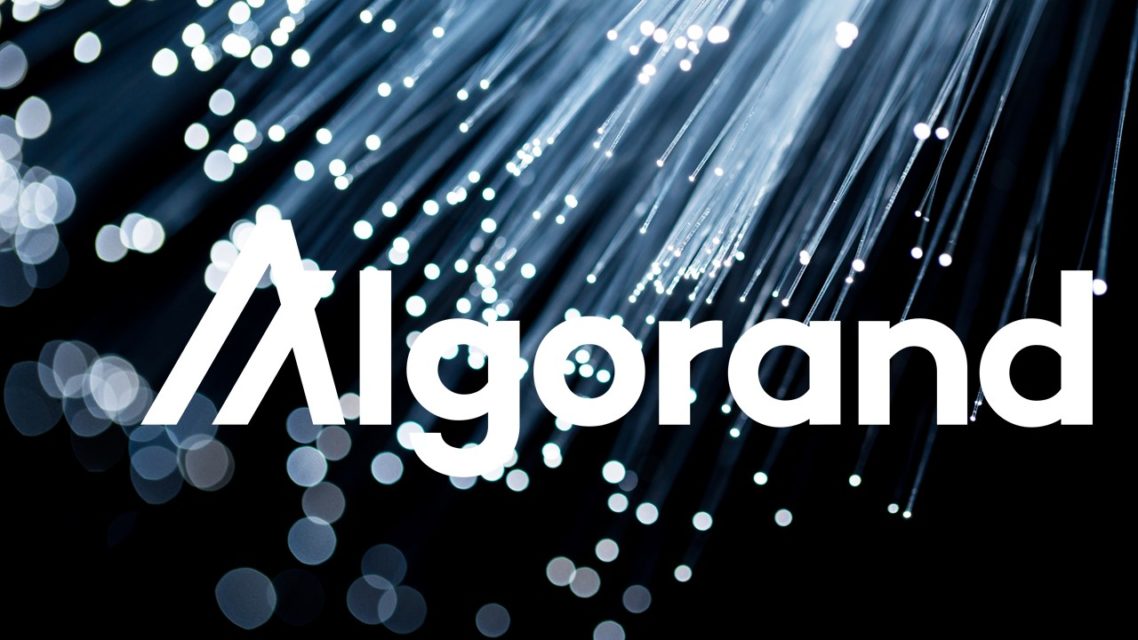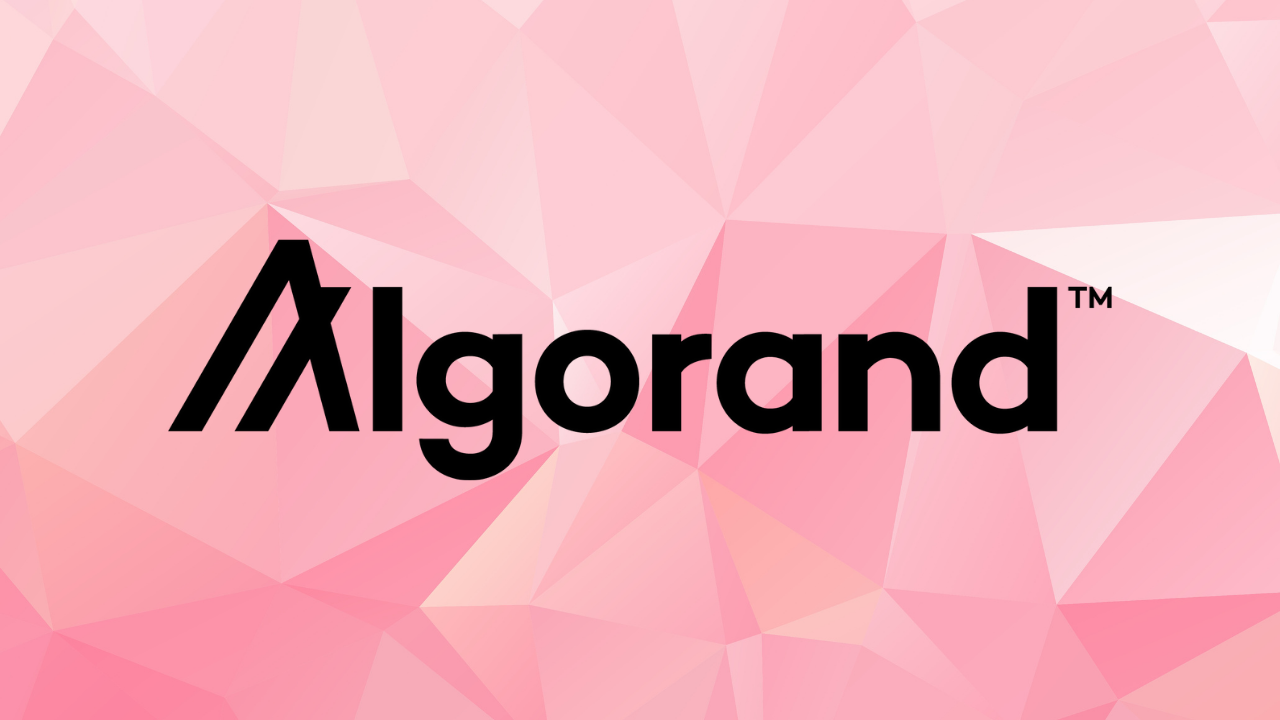Algorand is a self-sustaining, decentralized blockchain-based network that supports a wide variety of applications. It was developed in June 2019 by computer scientist and MIT professor Silvio Micali.
Algorand is a two-tier open-source blockchain network focused on payments.
The blockchain space has continued to witness tremendous growth in recent times as new cryptocurrencies, protocols and networks enter the emerging crypto market.
Surprisingly, while there are more than 6,000 crypto tokens in circulation according to Statista’s report, there are only a few major blockchains that make up less than 1% of all cryptocurrencies in existence.
One particular blockchain project making its name is Algorand, which benefits from the native token ALGO, as well as the ability to host both decentralized and traditional financial models on a single platform.
ALGO Coin How Much TL?
According to current crypto money market data, 1 ALGO Coin 11.02 TL is traded at TL. ALGO Coin price has fluctuated by 4.14% in the last 24 hours. The trading volume of ALGO Coin in the last 24 hours is 595,825,090 $ and its total market cap is 5,025,026,736 $ dollars.
How much is ALGO Coin?
According to current crypto money market data, 1 ALGO Coin 0.738478 $ is traded at dollars. As of March 2022, ALGO Coin broke the record for an all-time high at $3.28. However, ALGO set the lowest level of the year at $ 0.6744.
What is Algorand (ALGO) Coin?
Algorand is a blockchain project funded by the Algorand Foundation, a Singapore-based company known for its strides in developing advanced technologies. Although Algorand was officially launched in 2019, the theoretical work dates back to 2017 and was led by Silvio Micali, a professor of computer science at the Massachusetts Institutes of Technology (MIT).
Known for his expertise in cryptography and computer science, Micali was one of the co-authors of the Algorand whitepaper, which, along with Stony Brook, detailed each part of the project from its core infrastructure to the finished product itself.
When coming up with the idea for Algorand, Micali and his team wanted more than a basic utility token. It resulted in the development of a platform for smart contracts as well as a project that could track things like property deeds and sales.
However, even though a crypto project doesn’t end with a whitepaper, the use case is of great importance. As such, Algorand was launched two years after the start of the research effort, raising nearly $60 million in token sales aimed at raising capital as well as launching a use for the local currency.
What is ALGO Coin?
Algorand is an open source two-layer blockchain network that solves the blockchain triad by combining the unreliability, immutability and decentralization of mainstream cryptocurrencies with the speed and security of the basic pure proof-of-stake (PPoS) consensus mechanism.
If you are familiar with the crypto space, you will understand what the term “blockchain trilemma” means. However, for those who stumble upon this for the first time, a blockchain triad is a situation in which a blockchain system fails to fully achieve its three core goals (security, scalability, and decentralization) without sacrificing at least one of them.
While the blockchain triad is mostly native to traditional blockchain systems such as Ethereum (before the ETH2.0 update) and other layer-1 blockchains, Algorand is one of the few platforms that offers real solutions.
Algorand specifically uses the concept of randomness in solving the blockchain trilogy. Such an approach focuses on validators whose primary function is to add new transaction blocks.
For this purpose, Algorand’s underlying algorithm selects random validators, typically consisting of token holders. Then, the selected validators form a group of nodes that will be eligible to add new blocks to the network.
By applying this concept, Algorand can achieve true decentralization as anyone in the network who owns tokens can be selected by the system. Moreover, the fact that validators are randomly selected by the system further resolves the security issues attributed to legacy blockchain systems.
As Algorand is a payment-oriented network, it is designed to achieve fast transactions and near-instant certainty. For example, Algorand can process more than 1,000 transactions per second (TPS) and achieve transaction accuracy in less than five seconds.
How Does Algorand Work?
Algorand uses a unique type of proof-of-stake consensus mechanism known as ‘Pure Proof-of-Stake’ (PPoS), which as mentioned earlier is responsible for increasing transaction speed and accuracy.
PPoS, unlike more traditional PoS, is a highly democratic consensus mechanism with a low barrier to entry. For example, the minimum stake requirement is only 1 ALGO token to join the network and ensure security. By comparison, the Ethereum 2.0 consensus program requires a minimum of 32 Ether to participate.
The PPoS consensus mechanism, in addition to facilitating random validator selection on the blockchain, is also effective for the reward system of the network. In this regard, the PPoS mechanism distributes the rewards of the validators to all holders of the network’s native currency, ALGO.
Algorand also adopts a two-tier blockchain infrastructure; This means that it includes the benefits of both layer-1 and layer-2 blockchains. Algorand’s core layer supports smart contract integration, asset generation and atomic cryptocurrency exchanges, all of which are responsible for security and compliance.
Users can create Algorand Standard Assets (ASAs) leveraging the layer 1 blockchain infrastructure; which means any entity can be represented and benefit more from the same level of security and scalability locally.
In particular, Algorand’s ASA protocol allows users to create new tokens in the case of a developer and transfer existing tokens from other ERC-20 compatible wallets to the Algorand ecosystem in case of individual participants.
On the other hand, the additional layer is reserved for more complex tasks, some of which involve the integration of complex smart contracts and the development of decentralized applications (dApps).
Moreover, given that Algorand is a public blockchain that relies heavily on staking, it hosts as many dApps as possible without sacrificing speed or scalability.
Another interesting aspect of the Algorand blockchain is its adaptability with certain central bank digital currencies (CBDC). In the latest development, the platform was chosen to host the Marshall Island CBDC after extensive research into several host blockchains.

About Algorand Token
ALGO doubling as the key exchange asset on Algorand’s blockchain network native cryptocurrency. The ERC-20 token is an integral part of the network’s reward system, as it is used to not only facilitate exchange within the ecosystem, but also to incentivize verification nodes to generate blocks.
Unlike other blockchains, the Algorand reward system works in a unique way. Precisely, the benefits paid to validators for producing blocks, rather than only being given to block producers, are split and distributed among all ALGO token holders.
However, this is due to the concept of randomness adopted in the selection process for validators. This also means that all ALGO token holders can earn as high as the annual percentage yield (APY), which is a significant percentage compared to other platforms.
Another unique aspect of Algorand is that users are not forced to ‘share’ ALGO tokens to benefit from the reward system. Instead, by holding some of the ALGO tokens in a non-custodial wallet or an exchange such as Algoswap, users can access the earned rewards.
There are currently three billion ALGO tokens in circulation, 1.75 billion tokens will be distributed as rewards for participating nodes, 2.5 billion will be allocated to relay tokens, 2.5 billion and 0.25 will be allocated for the Algorand Foundation and Algorand Inc. billion ALGO tokens will be distributed for end-user grants.
Algorand Management and Algorand Foundation
The Algorand Protocol is managed by the Algorand Foundation. The nonprofit oversees the funding and development of the blockchain Protocol alongside Algorand Inc.
The Algorand Foundation, beyond its responsibility to drive growth and development in the blockchain Protocol, also facilitates fellowships for developers at the University as well as other educational settings. Specifically, the foundation’s global university program includes leading institutions such as MIT and UC Berkeley, among others.
The Foundation also launched two acceleration programs in 2020, one in Asia and one in Europe. According to the foundation, the accelerator program is designed to assist developers as well as ongoing projects that want to build on the Algorand Protocol.
ALGO Coin Review and Future 2022
There are a few things we need to consider in order to evaluate the overall performance of Algorand.
Low computational requirements: Unlike the PoW blockchain consensus, the presence of miners is prevented in the Algorand protocol. This helps two things: first, transaction fees are much lower than they would be with miners in the ecosystem. Second, the protocol passes the environmental friendliness test.
Authorization: Tokens can be transferred to a shareholder if a participant wishes to be part of the consensus authorization arm.
Unforkable chain: In the Algorand consensus, users can trust each block as it appears because it cannot fork or branch into two different chains. While there are times when the network is partitioned, Algorand ensures that transactions remain consistent. Double spending is an issue on many decentralized platforms. In the Algorand network, double spending does not occur as it is impossible to persuade two different people to confirm two different transaction blocks in the same transaction round. Also, once a block is created, it becomes part of the system forever.
True decentralization: The random selection of the committee to approve blocks means anyone online can be chosen and therefore the network is truly decentralized. Token holders can also vote against or in favor of changes in the network.
Scalability and speed: Algorand is more viable than most of its competitors.
Overall, Algorand is an impressive project with a pure PoS consensus mechanism. To reiterate, Algorand is a protocol currently approaching solving the blockchain trilogy. It’s still unclear how Ethereum 2.0 will affect the Algorand protocol, but hopefully Algorand doesn’t take a major hit.
Algorand’s team has tremendous brainpower in math and computing, and has millions of dollars in investments from retail and venture capitalists. The Algorand team is changing the DeFi concept and we can’t wait to see how the project turns out over the next few months.







